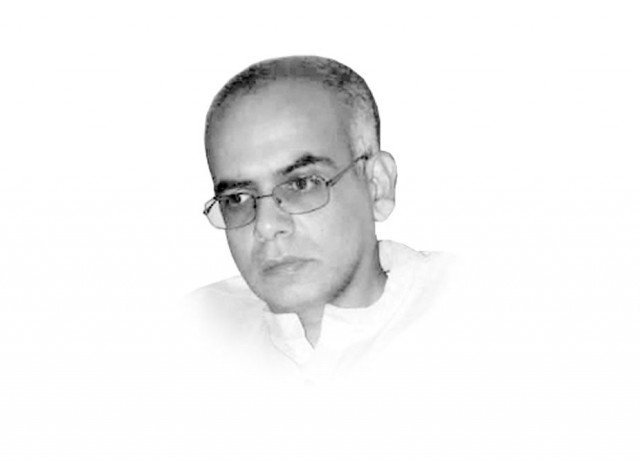Caught between globalism and tribalism
Many conflicts fueled by tribal sentiments manifested in the form of ethnic, racial, religious characteristics

The writer is a development anthropologist. He can be reached at ali@policy.hu
While these two central forces of our age may seem diametrically opposed, they do have important underlying convergences such as their mutual assault on the important principle of representative democracy.
Growing parochialism based on the impulse of exclusion is the hallmark of tribalism which remains a potent force employed by demagogues around the world. Creating a sense of solidarity by defining a group in contrast to another or the “outsiders” proves to be an effective strategy to gain power. However, such a sense of solidarity is causing a fanaticism in beliefs and intolerance towards the “enemies within” (for example migrants or other minorities). Nationalism is thus being turned into a reactionary and divisive force, undermining the very sense of cohesion it once helped to create.
There are many conflicts around the world today which are being fueled by tribal sentiments manifested in the form of ethnic, racial or religious characteristics. Europe’s scourge of anti-Semitism has resurfaced but it is only one of many antagonisms evident there. Hatred towards migrants or visible minorities has increased. For instance, Muslim women in hijab have become newer targets of resentment. It is not only western countries which have fallen prey to tribal tendencies. Consider, for instance the fate of the Tamils in Sri Lanka, the violence against the Tutsis in Rwanda, or against the Rohingya in present-day Myanmar.
On the other hand, we see a growing gap between the haves and the have-nots. Globalisation of production processes may have impacted all our lives, but this impact is varied in terms of its consequences. It has caused staggering amounts of wealth to accumulate in the hands of the few, and compelled countless people to slog away at exploitative terms to ensure household survival. Instead of widely spreading benefits of economic productivity, globalisation has spurred a race to the bottom-of-the barrel as developing countries try to outbid each other to attract foreign investment by offering lax regulation and cheap labour.
Powerful international agencies like the IMF, the World Bank and the WTO continue advocating market-based liberalisation of not only economies but also governance systems. Yet, an imported economic and governance reform agenda cannot boost democracy or create a genuine civil society. Imposing such conditionalities as incentives to receive financial assistance can even have the opposite effect. Democracy is supposed to grow from the bottom up. It cannot be imposed from the top down. The world has seen its share of colonialism, imperialism and authoritarianism, but we have still not learnt our lesson.
The aim here is not to promote isolationism or protectionism. We now live in an inextricably interconnected world and the international community can, and should work together to achieve common goals. But the need of the hour is to seek out and support indigenous democratic impulses and allow them flexibility to engage with the global economic system on fair terms of trade. Instead, we get international consultants and governance experts writing very similar economic growth strategies and governance reform prescriptions for countries facing very different realities. This one-pill-fixes-all-remedies approach is not effective, and it is not making the world a better place.
Instead of thinking globally and acting locally, we see evidence of political leaders thinking locally and acting globally. Given these circumstances, it is not surprising to see lopsided attempts to bring the world closer together, having instead unleashed divisive forces which are now trying to rip it apart again.
Published in The Express Tribune, August 16th, 2019.
Like Opinion & Editorial on Facebook, follow @ETOpEd on Twitter to receive all updates on all our daily pieces.















COMMENTS
Comments are moderated and generally will be posted if they are on-topic and not abusive.
For more information, please see our Comments FAQ